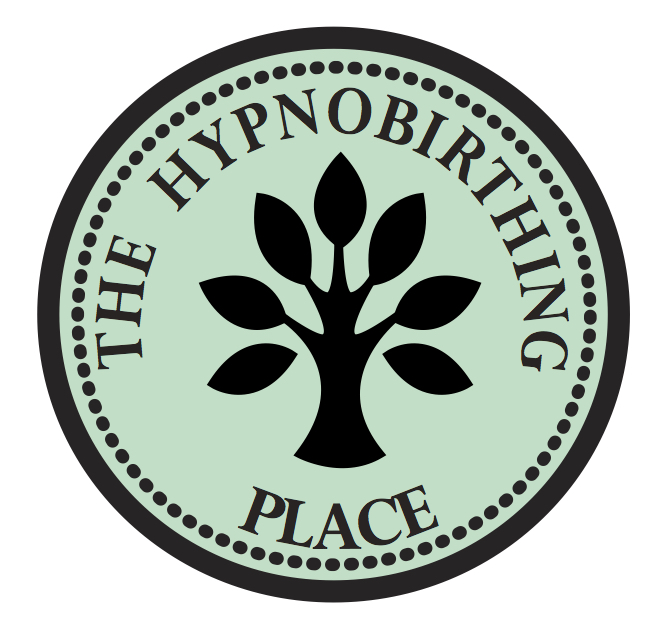4 tips for dealing with your due date, and staying calm if you're 'overdue'
Remember that one size doesn’t fit all
Before I share some tips for staying calm if you go past your ‘due date’ lets explore how misleading the notion of a ‘due date’ actually is.
We are told that a baby is due at 40 weeks right? But that’s in the UK. If you are French then it’s 41 weeks. But what if you are English, living in France? Other countries have different due dates too. Confusing?!
So, back in the UK… how has your due date been calculated? Midwives will take the date of your last period and add 280 days, or 40 weeks.
You’ll then have an ultrasound scan where another estimate is made, based on the size of the foetus. If the two ‘due dates’ differ by a week or more, they’ll go with the date from the scan.
The problem is, due dates are misleading.
Only 4% of women give birth on their due date. It’s based on in-exact science, and goes by the assumption that we all gestate our babies for the same length of time, which is simply not the case.
Reasons we shouldn’t rely on the accuracy of due dates:
40 weeks of pregnancy is a time period established by a German obstetrician (Naegele’s Rule) a long time ago - in the early 1800’s in fact, and is not evidence based.
Predicting the average length of pregnancy is an inexact science, but we do know that women often go over their due date by at least 1 - 4 days:
Research (Mittendorf R et al 1990) demonstrates that pregnancy in first-time Mums lasted on average 8 days longer than Naegele’s rule. Women on their second or more delivery gave birth 3 days after their due dates on average.
Another study using reliable conceptions dates found that first-time mothers went an average of 4 days “late;” and women with a previous birth went 2 days “late.”
This relatively small scale research study calculated gestation by pinpointing the exact time of conception. It found that the length of pregnancy can vary naturally by as much as five weeks. The authors of the study say it’s "Too early to make clinical recommendations" but clinicians may want to "keep the results in mind" when deciding whether to intervene in a pregnancy.
Research by Morken, Melve and Skjaerven (2011) suggests that if women in your family gestate for longer than 40 weeks, then so might you.
Women aren’t made in a factory; our menstrual cycles differ from each other, and often vary month to month
Yet, most people will focus on their due date… have it written in their diary and etched onto their brain.
Friends will begin texting a week or two before the due date asking if there’s ‘any news’? Well meaning, but not helping - This is when the pressure and stress starts to mount.
THE DUE DATE IS AN ESTIMATE, NOT THE ‘BEST’ OR ‘RIGHT’ TIME FOR BABY TO BE BORN.
Yet the ‘due date’ and after, is when the pressure increases. Caregivers start talking about sweeps… induction… these words can strike fear into mums-to-be.
Paradoxically, it can be all this talk, along with all the advice about how to go into labour naturally, that can lead to induction.
Fear and anxiety inhibits your body’s ability to produce oxytocin, the hormone needed for you to go into labour naturally.
So here are some top tips to help get that oxytocin flowing, so your body and baby can go into labour when they’re ready.
Celebrate!
Photo by Mel Turner on Unsplash
Many will advocate that you ignore your estimated due date completely.
But, despite how misleading due dates are, I do NOT suggest ignoring yours. Quite the opposite!
The fact is, Midwives will constantly refer to how many weeks pregnant you are (e.g. 31+2) and no matter how hard you try, it’s usually a date you can’t un-know.
Instead of ignoring it, when you reach your due date - celebrate!
Do whatever you want to do with your partner. Go out for a lovely meal. Crack open the champagne. Plan a gorgeous walk in the countryside and a picnic.
Celebrate what a marvellous job your body has been doing, growing this new little person inside you. Give yourself credit where credit is due, and really appreciate yourself and your baby.
Because really, it is miraculous.
APPRECIATE THIS with a glad and open heart.
And with all this love and joy, you’ll be getting the oxytocin flowing, which is always a good thing.
If you go over 40 weeks, relax, relax, relax
Photo by Ravi Pinisetti on Unsplash
My first baby (Joseph) was 2 weeks ‘late’ and my second was 1 week ‘late’. I am one of those women who needs longer to cook a baby, as legendary midwife Ina May Gaskin puts it. Joseph ended up being induced (this was pre-hypnobirthing training). This makes Joe one of the one in five babies that are induced in the UK.
WHAT NOT TO DO
I wanted Joseph to be born naturally, without the need of induction. I was so worried about him being induced that I spent my days consuming pineapple and curry, walking up and down hills, having reflexology and acupuncture. I also had three sweeps. This is where a midwife separates the separate the membranes of the amniotic sac surrounding your baby from your cervix. I was extremely stressed out, and I am convinced that all the stuff I did scared Joe into digging in his heels and refusing to come out.
Instead of oxytocin flowing through my body, the adrenalin was pumping. Given oxytocin stimulates labour and adrenalin inhibits labour, you can see why this has the opposite of the desired effect.
WHAT TO DO
For my pregnancy with iris I did the opposite. I got to 40 weeks and refused sweeps. I continued to eat the food I’d been eating all the way through. I spent a lot of time watching films whilst sitting on my birth ball.
I went to the park with Joe and sat by the pond. I watched the jellyfish float around in the Horniman museum. I even let the midwives book me into a C-section for 42+1 weeks (which I could do because I’d ended up having a C-section the first time round). I just wanted them to stop asking me about it and I knew I wouldn’t need it.
TO BRING ON LABOUR NATURALLY
Some simple ways to help stimulate oxytocin in your body, the star of the show when it comes to labour…
Your Hypnobirthing practice will help you feel more relaxed and confident and you may well find it creates a ‘buffer’ of calm, so that even if conversations with caregivers become more medicalised, you are able to respond in the way that feels right for you.
Many of my clients have found the MP3 for Kindness and Compassion in Pregnancy particularly useful to listen to daily around this time, because it’s designed to help you take the pressure OFF and to be kind to yourself.
Put up affirmations like ‘I trust that my baby will come soon’ and ‘I am ready to meet my baby’.
Orgasm, by yourself or through sexual intercourse - Female orgasms stimulate the first uterine contractions and semen contains the hormone prostaglandin, which softens the cervix.
Nipple stimulation from 37 weeks - When your nipples are stimulated (up to 15 minutes of finger stimulation around the whole nipple area), oxytocin is produced and this helps establish your breastmilk supply too.
Have a bath - Water is soothing and with candles you can create a perfect relaxation bubble. You can add a couple of drops of clary sage essential oil to help relax and promote labour.
To help you make informed decisions, use the mnemonic BRAINS to help with discussions with your caregivers:
Benefits
Risks
Alternatives
Instincts
Do Nothing
Smile
Ultimately, you do what feels good to you.
Give yourself as much love and kindness as you can muster, and enlist the help of your birth partner to dial it up even more.
Remember, oxytocin is the hormone of love, the hormone of calm, the cuddle hormone!
Give yourself SPACE
Photo by Ryan Moreno on Unsplash
Take the pressure off
Tell your friends, family and colleagues that you are due in ‘spring’ rather than the 1st April, to avoid most of those anxiety-inducing texts.
Reframe your situation as ‘still pregnant,’ rather than ‘over-due.’
Ask your caregivers to give you some space. Remember that sweeps are an option, not a necessity. If your caregivers press for an induction date, you might consider agreeing to one (either for when they suggest, or adding on time depending on what you’re comfortable with), knowing this will afford you some breathing space and that you can always change your mind.
If you are interested in a positive induction story, you can find a couple here.
An exercise to enjoy during the final weeks of your pregnancy:
Take a deep breath in,
Exhale a long breath out, spreading your arms out wide as you do so, and say to yourself:
“There’s plenty of time, there’s plenty of space.”
Repeat 3 times.
Take the pressure off, enjoy the chance to stretch time and chill out.
Focus on what you want, not what you don’t want
Photo by Gaelle Marcel on Unsplash
You will have gathered that part of helping yourself to feel good, is setting your mind in the direction you’re aiming for, rather than letting worries and fears take hold.
When pregnant with Iris, I told myself I’d go into birth naturally when she and my body were ready to get it together and get going. I put up positive affirmations around my home. I had my nest ready with flowers and candles and lovely relaxing pictures all over the place, knowing I wanted her to be born at home.
I went into labour at 41 weeks, after a lovely date with my husband the evening before. I was over the moon, but I wasn’t at all surprised. Because even though Joseph was later, I knew this time would be different. This time I was relaxed… full of oxytocin… feeling ready. And don’t get me wrong, I had made peace with the idea of a planned Caesarean if my baby had other ideas.
When it comes to going over 42 weeks – I don’t advise couples either way, because everyone is different and it is down to the choice of the individual. Certainly if you go over 42 weeks, it is recommended that you (your uterus and the baby) should be regularly monitored.
As NHS guidelines put it: "There is a higher risk of stillbirth if you go over 42 weeks pregnant, but not every pregnancy over 42 weeks is affected this way. At the moment there is no way of knowing which babies might be at risk, so induction is offered to all women who don't go into labour by 42 weeks."
What I would say is this. Do the research, speak to your caregivers, and then come from a place of informed decision making.
Trust yourself and find what feels right for you.
I wish you all the best for these last days of pregnancy.
Enjoy spending your time doing whatever gets the oxytocin going, and how wonderful to know you’ll be meeting your baby soon, come what may.
Zoe x
[1] US National Institute of Environmental Health Sciences
Photo by lovely Hypnobirthing Place mum Nadia, (@neonblueninja on Instagram)
Blogpost updated from January 2017 post



















